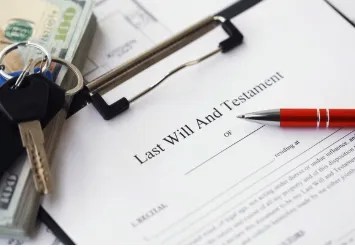
What Happens If I Die Without a Will? – Alabama Law Explained
No one likes to think about death, but planning for it is one of the most responsible things you can do for your loved ones. In Alabama, if you die without a valid will—a situation legally known as “intestate”—the state decides who gets your property, regardless of your wishes.
At Nelson, Bryan, and Cross, we guide families through the probate process and help clients plan their estates to avoid unnecessary legal complications. Here’s what happens when someone in Alabama dies without a will.
Alabama’s Intestate Succession Law
If you pass away without a will, your estate will be handled according to Alabama’s intestate succession laws. These laws determine how your assets are distributed among your surviving relatives based on a fixed formula:
If you’re married with no children: Your spouse receives the entire estate.
If you’re married with children: Your spouse receives the first $50,000 of your estate plus half of the remaining balance. The rest goes to your children equally.
If you have children but no spouse: Your children inherit your entire estate in equal shares.
If you have no spouse or children: Your parents, then siblings, then nieces and nephews may inherit.
These laws do not consider the quality of your relationships, blended families, or personal intentions. That’s why dying without a will can lead to outcomes you wouldn’t want.
Common Issues That Arise Without a Will
Family Disputes
When the law distributes your assets, it may leave out loved ones you wanted to include—or include those you didn’t. This often leads to conflict among surviving family members.Delay in Distribution
The probate court must determine legal heirs, which can cause delays in releasing funds or property. This can burden your surviving family during an already difficult time.Unintended Beneficiaries
Without a will, non-family members—such as close friends, unmarried partners, or stepchildren—typically receive nothing unless formally adopted or named in legal documents.Minor Children Complications
If you leave behind minor children, the court will appoint a guardian without input from you. Without a will, you lose the ability to name someone you trust to care for your children.
What You Can Do Now
Creating a will ensures your wishes are known and followed. In Alabama, a valid will must:
Be in writing
Be signed by the person making it (the testator)
Be witnessed by at least two individuals who are not beneficiaries
While you can create a will on your own, having it prepared by an experienced estate planning attorney ensures your document meets all legal requirements and minimizes future disputes.
Avoiding Probate Altogether
In addition to writing a will, there are other tools to help your estate avoid or streamline probate:
Revocable living trusts
Payable-on-death (POD) designations
Joint ownership with rights of survivorship
Each option carries legal considerations—so it's best to consult with a qualified attorney.
Final Thoughts
Dying without a will puts your loved ones at the mercy of Alabama’s probate laws. By creating a will, you control who receives your property, who cares for your children, and how your legacy is preserved.
Don't leave these critical decisions to chance. Let us help you plan for the future with confidence.
Contact us today to schedule your estate planning consultation. Our attorneys are ready to help you prepare a will that reflects your wishes and protects your family.